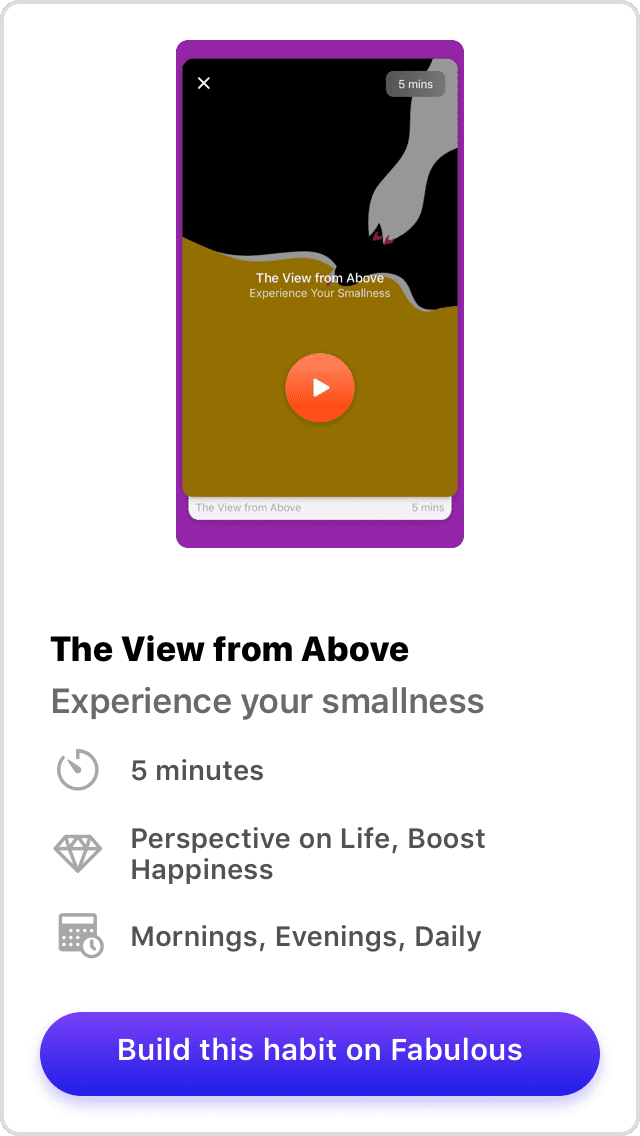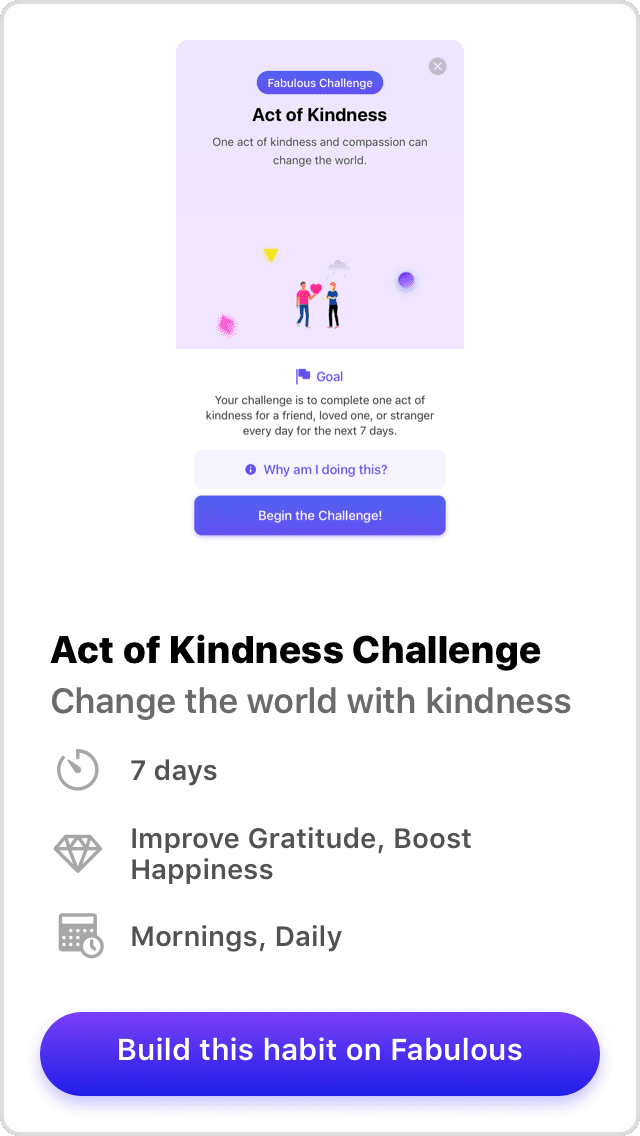We’ve all been taught to be kind and caring towards others. Our parents, teachers, and friends remind us that it’s the right thing to do. Realistically, we give and take in fairly equal measure. But for many, this attitude is restricted to a home or social environment. When it comes to the workplace, the first rule seems to be: Look after your own interests.
This is not a surprising attitude for individuals to adopt. After all, the more we gain from the workplace, the more we can give to our loved ones. A promotion means a vacation for the family, and a bonus means better gifts for Christmas. But Professor Adam Grant wants to let you know it doesn’t have to be that way. According to his book, Give and Take: A Revolutionary Approach to Success, giving to others in the workplace can be the best way to gain professionally.
Looking for a way to calm your mind as well as strengthen your bond with friends and colleagues? Take up the “Group Meditation” Challenge and gain greater motivation, support, and social connections!
Takers, Matchers, and Givers
As a professor at Wharton Business School, Grant explores elements of organizational psychology, such as the dynamics behind collaboration, negotiation, and networking in business. But don’t worry, the concepts explained in Give and Take can be understood and applied by anyone, regardless of a business degree!
Grant states that there are three types of social interactions within any organization. Every person in a company, no matter their age, status or gender, will interact with others in a certain manner. And their style of interaction can change depending on who they are dealing with as well.
Takers
These are the individuals who always ask themselves, “What’s in it for me?” Once you spend time with them, you’ll quickly realize that everything they do benefits them first and foremost. If their team succeeds because of their effort, that’s of secondary concern. What they want is to know how much further they can climb the corporate ladder.
Takers might not be typically selfish and lonely. The most accomplished takers are ones who can pretend to help and be friendly. They will definitely do you a favor, but only so that you will owe them something more valuable later on. Every action they take is calculated to maximize return. They won’t waste a smile or expend a compliment unless it gets them closer to their goals.
Having said that, we need to remember (and occasionally remind ourselves) that takers are not inherently bad people. A taker’s behavior is often shaped by fear (“If I don’t take from others, I will fail!), distrust (I better take from others before they take from me!) and the overall attitude of society (Everybody is supposed to look after themselves!). Any of us can slowly adopt a taker’s traits. Therefore it’s important to not get caught up in the rat race. Because life is bigger than the next bonus or promotion, isn’t it?
It’s always good to take a step back and keep things in perspective. Try “The View from Above” Meditation from the app’s Make Me Fabulous section to experience your smallness!
Matchers
Thankfully, the world is not filled with takers. Of course, it’d be impossible for an organization to function, if every person in it wanted to take more than they give. In fact, the majority of individuals in a social group are matchers.
These are people who will give back exactly what they get. If you buy them a cup of coffee, they’ll offer to help you set up the office printer. And if they covered for you at work on Friday, they’ll expect you to do the same for them later. Everything is strictly quid-pro-quo. There’s no scheming for more, but there’s also no extra friendliness. “Matchers operate on the principle of fairness… (their) relationships are governed by an even exchange of favors,” Grant explains.
Matchers are the individuals who bring about balance in an organization. They keep takers in check. Since matchers don’t like being taken advantage of, takers cannot exploit them too much or for too long. While it’s definitely much better to be a matcher than a taker, the book offers a third, more radical option.
Givers
Ever had a neighbor who offered to drive you to the airport when you casually mentioned having to hail an Uber because your car was in the garage? If so, lucky you! That’s a classic example of a giver. Somebody who is genuinely interested in helping you with their time, effort and advice. Givers are affectionate, generous, and willing to assist you without expecting anything in return. They don’t keep score of who owes whom, or how to collect. They always wish the best for you.
Most of us have mixed feelings about givers. While we truly adore their good-natured behavior, we also sometimes pity them. Like the country bumpkin exploring the city, a giver is bound to be taken advantage of, right? Even as we gladly accept their assistance, we hope never to be like them.
And the Winner Is…
Who do you think succeeds in an organization over the long term? You’d be justified in assuming it was the takers. After all, society and pop culture keeps reminding us that it’s a tough world out there. Being nice doesn’t help is considered conventional wisdom.
But through extensive research and case studies conducted across multiple professions, Adam Grant proves that the real winners… are the givers. So how can being helpful and supportive of others make you a better person professionally? Here are just some of the reasons provided in the book.
Your Reputation Precedes You
Every day, we are crafting, cementing or changing our reputations. And since human beings innately appreciate kindness, generosity, and assistance, givers eventually establish a name for themselves. Especially in an age of instant communication, word quickly spreads. This means the more you give, the more people are inspired to help you because they endorse your behavior. And the exact opposite happens to takers. Their reputation will make it tougher for them to network with other individuals.
Contagious Positivity
A lot of work gets done through teams rather than individuals. In such environments, givers boost productivity and morale through their interactions with others. When you work to make your colleagues happier, they do the same for others. The end result is not just a lot more laughter in the office, though. Research has shown that positivity contributes to better performance. You don’t smile because you made more money. You made more money because you made others smile!
Too Much of a Good Thing
The most successful people in an organization are givers. However, this book also reminds us that some of the least successful people… are givers as well! How come?
It turns out, there needs to be a balance between giving generously, and taking care of your own self-interests. Sometimes you need to draw a line and turn down requests when it goes against your overall wellbeing. Since a lot of people are takers, you run the risk of being exploited if you are not careful as a giver.
Give and Take is a book that’ll force you to reevaluate your behavior while also giving readers a general understanding of group dynamics and perceptions. It’s reaffirming to know that good behavior does ultimately get rewarded by organizations. Read the book to understand all the nuances involved in becoming a giver, and let it guide you toward a more successful and fulfilling professional and personal life!
Start becoming a giver with simple steps. Take up the “Act of Kindness” Challenge and do something compassionate for a friend, loved one or stranger every day for a week!






